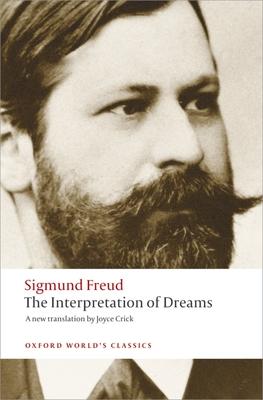
The first edition of The Interpretation of Dreams is much shorter than its subsequent editions; each time the text was reissued, from 1909 onwards, Freud added to it. The most significant, and in many ways the most unfortunate addition, is a 50-page section devoted to the kind of mechanical reading of dream symbolism--long objects equal male genitalia, etc.--that has gained popular currency and partially obscured Freud's more profound insights into dreams. In the original version presented here, Freud's emphasis falls more clearly on the use of words in dreams and on the difficulty of deciphering them. Without the strata of later additions, readers will find here a clearer development of Freud's central ideas--of dream as wish-fulfillment, of the dream's manifest and latent content, of the retelling of dreams as a continuation of the dreamwork, and much more. Joyce Crick's translation is lighter and faster-moving than previous versions, enhancing the sense of dialogue with the
reader, one of Freud's stylistic strengths, and allowing us to follow Freud's theory as it evolved through difficult cases, apparently intractable counter-examples, and fascinating analyses of Freud's own dreams.
The restoration of Freud's classic is a major event, giving us in a sense a new work by one of this century' most startling, original, and influential thinkers. About the Series: For over 100 years Oxford World's Classics has made available the broadest spectrum of literature from around the globe. Each affordable volume reflects Oxford's commitment to scholarship, providing the most accurate text plus a wealth of other valuable features, including expert introductions by leading authorities, voluminous notes to clarify the text, up-to-date bibliographies for further study, and much more.
The first edition of The Interpretation of Dreams is much shorter than its subsequent editions; each time the text was reissued, from 1909 onwards, Freud added to it. The most significant, and in many ways the most unfortunate addition, is a 50-page section devoted to the kind of mechanical reading of dream symbolism--long objects equal male genitalia, etc.--that has gained popular currency and partially obscured Freud's more profound insights into dreams. In the original version presented here, Freud's emphasis falls more clearly on the use of words in dreams and on the difficulty of deciphering them. Without the strata of later additions, readers will find here a clearer development of Freud's central ideas--of dream as wish-fulfillment, of the dream's manifest and latent content, of the retelling of dreams as a continuation of the dreamwork, and much more. Joyce Crick's translation is lighter and faster-moving than previous versions, enhancing the sense of dialogue with the
reader, one of Freud's stylistic strengths, and allowing us to follow Freud's theory as it evolved through difficult cases, apparently intractable counter-examples, and fascinating analyses of Freud's own dreams.
The restoration of Freud's classic is a major event, giving us in a sense a new work by one of this century' most startling, original, and influential thinkers. About the Series: For over 100 years Oxford World's Classics has made available the broadest spectrum of literature from around the globe. Each affordable volume reflects Oxford's commitment to scholarship, providing the most accurate text plus a wealth of other valuable features, including expert introductions by leading authorities, voluminous notes to clarify the text, up-to-date bibliographies for further study, and much more.
Paperback
$14.95